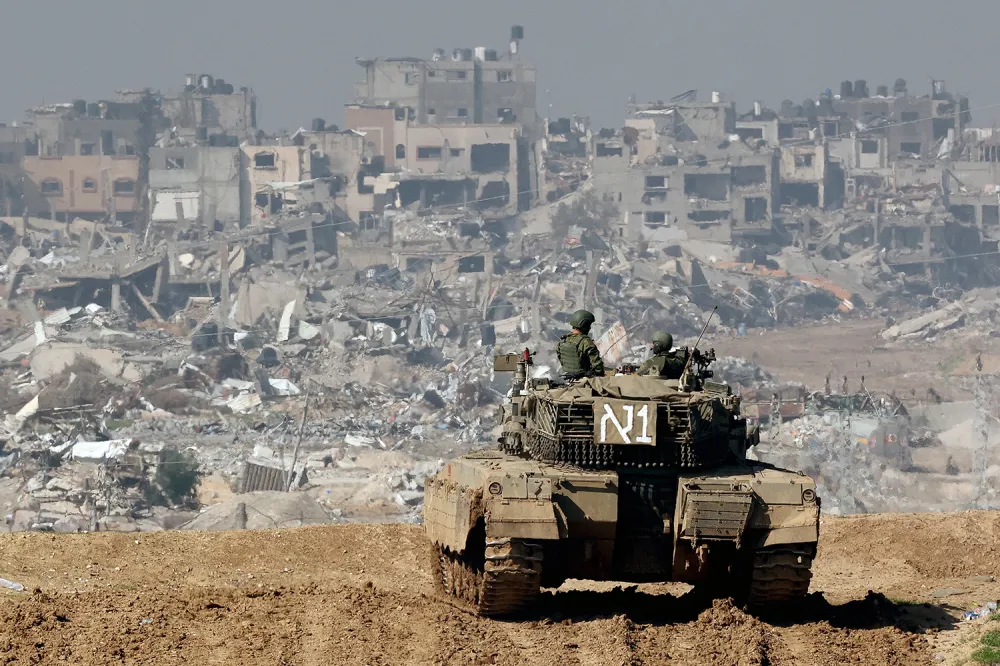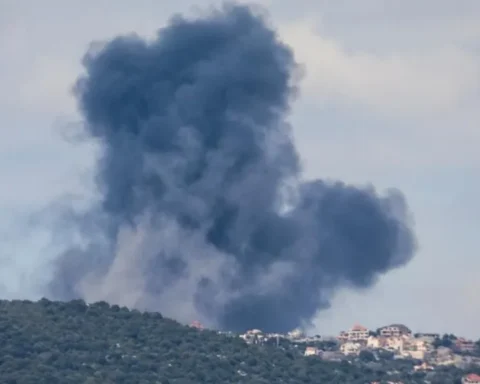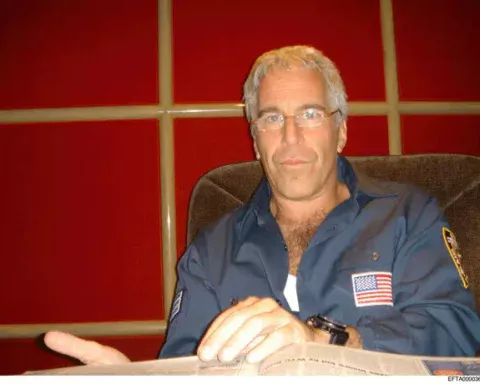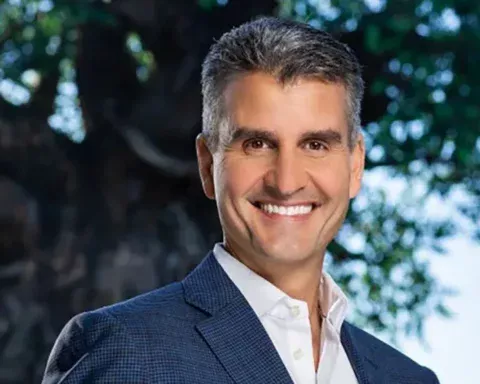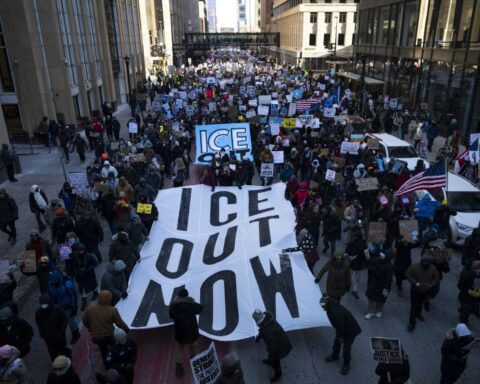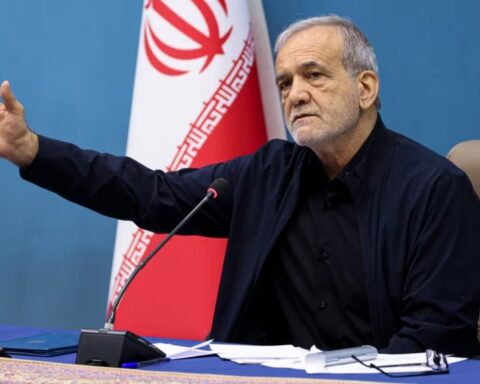“I would prefer this over killing children,” declares Iddo Elam, an 18-year-old Israeli, encapsulating a growing sentiment among some teens who are choosing jail over compulsory army service amid the ongoing Israel-Gaza conflict.
As the war, sparked by Hamas’ October 7, 2023, attack, drags into its second year, a small but vocal group of conscientious objectors—known as refuseniks—are rejecting the draft, citing moral objections to military actions they view as oppressive and deadly.
Facing prison sentences and societal backlash, these teens are igniting a debate about duty, ethics, and the human cost of conflict, with their stance drawing attention from global media and amplifying calls for peace.
The refuseniks’ movement gained traction as the war’s toll mounted, with over 14,500 children reported killed in Gaza by UNICEF, a statistic cited by CNN that has fueled their resolve. On March 24, 2025, Itamar Greenberg, another 18-year-old refusenik, walked free from Neve Tzedek military prison after serving 197 days across five sentences, his release marking a symbolic victory for the group, per the BBC.
Their refusal to enlist—mandatory for most Jewish Israelis at 18—comes as Israel’s military operations intensify, not just in Gaza but also in the West Bank, where the UN documented 124 child deaths in 2023 alone, according to NBC News. This backdrop of violence has thrust these teens into the spotlight, challenging a nation’s militarized identity.
A Moral Reckoning
For Greenberg, the decision to refuse was no snap judgment. “The more I learned, the more I knew I couldn’t wear a uniform that symbolizes killing and oppression,” he told CNN, tracing his stance to a years-long process of education and reflection. The war in Gaza, launched after Hamas killed 1,200 people and took 253 hostages, per the New York Times, crystallized his opposition. He saw enlistment as complicity in a cycle of violence that has flattened Gaza and displaced millions, a view echoed by Lior Fogel, a 19-year-old who secured a mental health exemption but remains an active refusenik advocate. “The army is an institution based on violence and force,” she told CNN, pointing to its role in what she calls systemic oppression of Palestinians.
The refuseniks’ numbers are modest—only a dozen have publicly refused since the war began, per Mesarvot, an organization supporting objectors, as reported by the BBC. Yet their impact belies their size. Yesh Gvul, another anti-war group, told CNN that 20% of draft-eligible teens annually avoid service, including “grey refuseniks” who quietly opt out via exemptions. This broader resistance suggests a simmering discontent, amplified by the war’s brutality—over 34,000 Palestinians killed, per Gaza’s Hamas-run health ministry, cited by NBC News—prompting some to take a public stand despite the consequences.
‘I Would Prefer This Over Killing Children’: Teens Defy the Draft
Elam’s stark declaration—“I would prefer this over killing children”—resonates as a rallying cry for refuseniks, reflecting their visceral rejection of military actions linked to civilian deaths. Speaking at a Tel Aviv protest, he told CNN he hopes to bridge understanding between Israelis and Palestinians, whose pain he sees as equal. The UNICEF figure of 14,500 child deaths in Gaza looms large in their rhetoric, a statistic the New York Times notes has galvanized international outrage. For Elam, who served prison time, the choice was clear: jail over joining a force implicated in such tolls.
Greenberg’s experience mirrors this ethos. Clad in a U.S.-issued army uniform—ironic attire for a non-soldier—he endured months behind bars, watching “American Sniper” in the rec room while refusing to embody its ethos, per CNN. His release this month, after rejecting multiple summons, underscores a willingness to pay a steep personal price. “If I join the army, I’ll just be part of the problem,” he said, per the BBC, aspiring instead to foster a solution, even if it’s a distant dream. Their defiance, though fringe, challenges Israel’s conscription culture head-on.
Societal Pushback and Support
The refuseniks face fierce resistance in a society where military service is a rite of passage and a bedrock of national identity. At a Tel Aviv demonstration, a protester interrupted Elam to insist his views don’t reflect the mainstream, per CNN, a sentiment echoed by Israel’s government, which denounces refuseniks as outliers. Fox News reports that Prime Minister Benjamin Netanyahu has framed the war as an existential fight against Hamas, justifying military escalation and dismissing dissent as naive. Greenberg’s stance, radical even among Israel’s left, clashes with mass protests focused on hostage releases rather than anti-war sentiment, per the New York Times.
Yet pockets of support emerge. Rakefet Lapid, whose children refused service pre-war and whose kibbutz was hit on October 7, told CNN, “I’m glad there are still some young people willing to say that.” Demonstrators chanting “peace, equality, social justice” at refusenik rallies, per the BBC, signal a niche but growing solidarity. Mesarvot’s weekly Tel Aviv protests, documented by NBC News, draw dozens who see these teens as harbingers of a less militarized future, even as the broader public remains skeptical or hostile.
The War’s Broader Canvas
The refuseniks’ stand unfolds against a war of staggering scale. The BBC details Israel’s West Bank operations, where 2023 marked the deadliest year for children, with 85 killed post-October 7. In Gaza, NBC News reports Israeli strikes on hospitals like Al-Shifa, accused of harboring Hamas, have deepened the humanitarian crisis—2 million displaced, per the New York Times. Hamas’ strategy, described by Foreign Policy as “human camouflage,” positions civilians between fighters and Israeli forces, a tactic the refuseniks decry as amplifying suffering, per CNN. This complexity fuels their refusal, seeing no moral clarity in joining either side.
International scrutiny adds pressure. The UN’s Marco Sassoli, reviewing BBC evidence of alleged Israeli abuses in the West Bank, labeled some acts potential war crimes, a charge Israel refutes. Amnesty International’s apartheid accusation against Israel, cited by CNN and rejected as antisemitic by officials, bolsters the refuseniks’ critique of systemic injustice. Their activism, Fogel told CNN, stems from this realization post-exemption, driving her to march alongside thousands in Tel Aviv’s pro-democracy protests, per the New York Times.
A Global Echo
The refuseniks’ story reverberates beyond Israel. NBC News notes U.S. officials like Jake Sullivan blaming Hamas for blocking civilian exits, yet the civilian toll—over 2,700 children killed by late 2023, per CNN—sparks global condemnation. Fox News highlights Trump’s controversial Gaza takeover proposal, backed by Netanyahu, which refuseniks see as further militarization they oppose. European voices, like France’s Macron, urge respect for Palestinian rights, per the BBC, aligning with the teens’ calls for justice over force.
On X, sentiment splits—some laud their courage, others decry their disloyalty, reflecting a polarized discourse. The New York Times suggests their movement, though small, could seed a broader dialogue on militarism, a hope Greenberg clings to despite admitting he may not see change in his lifetime, per CNN. Their jail terms—Greenberg’s 197 days, Elam’s stint—become badges of honor, amplifying their message worldwide.
The Cost of Conviction
Prison is just one price refuseniks pay. Fogel, deemed an “outcast” by her family for dodging service, told CNN of personal rifts mirroring societal divides. Greenberg’s five sentences, per the BBC, reflect the military’s resolve to punish defiance, yet each release strengthens their resolve. Yesh Gvul’s data, cited by CNN, shows a 20% refusal rate annually, hinting at a quiet majority avoiding the spotlight refuseniks embrace. This tension—between silent evasion and public resistance—defines their struggle.
Their activism carries risks beyond jail. Former soldiers told the BBC that West Bank operations stoke Palestinian resistance, a cycle refuseniks fear perpetuating. “It’s naive to think people won’t take up arms under this oppression,” one ex-soldier said, per the BBC, a view fueling the teens’ push for peace over perpetuation. Their protests, small but persistent, aim to disrupt this spiral, even at personal peril.
A Fragile Hope
The refuseniks’ defiance is a flicker in Israel’s militarized landscape, yet it burns bright. Greenberg, Elam, and Fogel embody a generation questioning conscription’s cost—14,500 child deaths in Gaza, per UNICEF via CNN, a number they refuse to abet. Their jail time, protests, and voices challenge a nation to reckon with its path. “The system of apartheid cannot be upheld,” Fogel told CNN, warning of collapse if unchanged. Whether their stand shifts policy or fades as a footnote, it marks a moral cry amid war’s din.
This article draws on reporting from the BBC, CNN, NBC News, Fox News, The New York Times, and other media outlets, weaving a narrative of courage, conflict, and conscience.
Focus Keywords: Israeli teens refuse army, conscientious objectors Israel, refuseniks jail over service, Israel-Gaza war morality, teen activists Israel, military draft refusal, peace over war Israel, child deaths Gaza conflict, Israeli youth protest, moral stand against army




